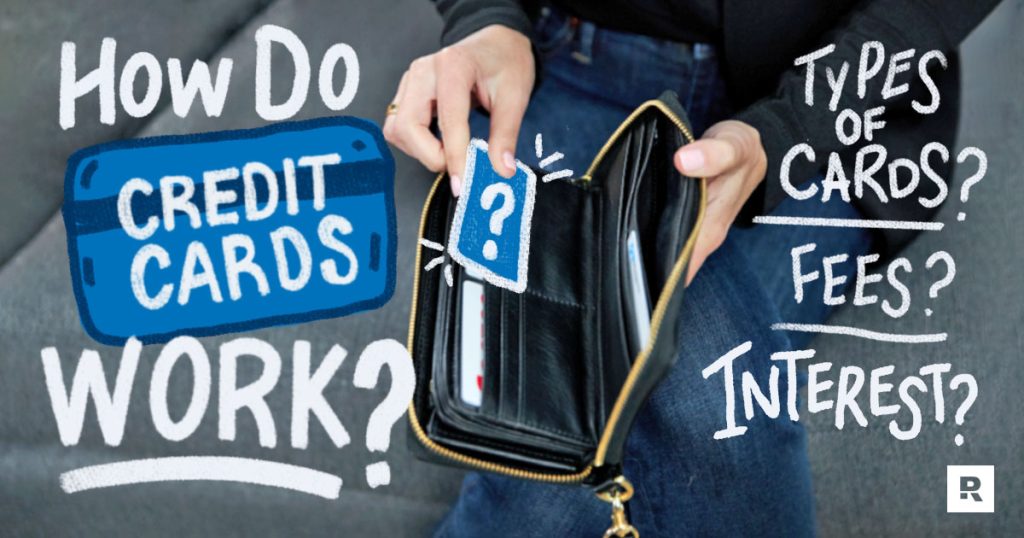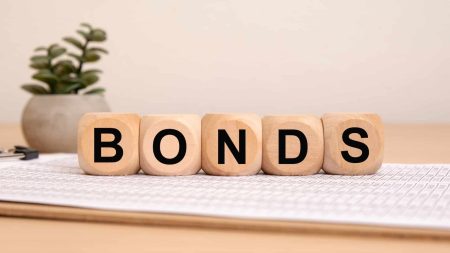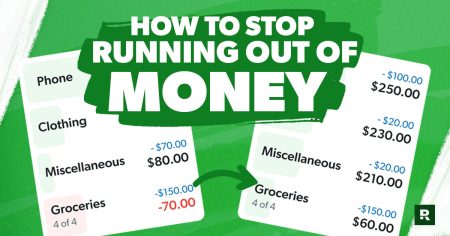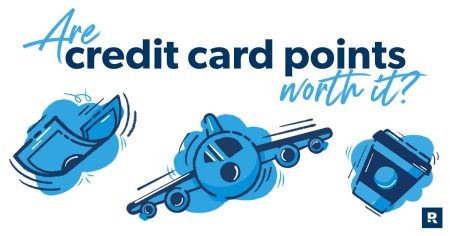It seems to be an unwritten rule in life that once you turn 18, you have to get a credit card—as if you magically become a mature adult the moment someone hands you a piece of plastic. (And let’s be real, most adults I know struggle with plastic.)
Now, to my dad’s credit, he always told me to stay away from credit cards. But the people I saw on TV sure didn’t. Everyone in those American Express commercials looked so successful. So by the time I was in college, I started to buy the idea that I needed a credit card to be smart with money. And as any normal 21-year-old would do, I did the exact opposite of what my parents taught me, and I got a credit card.
But the only thing credit cards helped me do was get into debt . . . and lots of it. If I knew then what I know now about credit cards, it would’ve been a whole different story.
I’m pulling back the curtain to show you exactly how credit cards work—the bad, the worse and the straight-up ugly. And trust me, it’s pretty scary. Once you see the nitty-gritty details, you’ll realize just how dangerous and nasty the credit card industry really is.
What Is a Credit Card?
How Do Credit Cards Work?
How Does Credit Card Interest Work?
Types of Credit Cards
What’s the Best Kind of Credit Card?
How Do Credit Cards Affect Your Credit?
Credit Card Fees
Pros and Cons of Credit Cards
Credit Card Rewards
What If I Pay Off My Credit Card Balance Every Month?
Credit Cards vs. Debit Cards: What’s the Difference?
Should I Get a Credit Card?
What Is a Credit Card?
A credit card is a piece of plastic or metal issued by a bank or credit card company that lets you buy things now and pay for them later. That’s the technical definition. But the Jade Warshaw definition is this: A credit card is dangerous debt that’s masquerading as harmless, helpful money (aka a trap).
When you use a credit card to make a purchase, you’re not using your own money—you’re borrowing from the bank or credit card company who gave you the card. It’s basically a modern-day IOU . . . with strings attached.
Credit cards are a type of revolving debt—which means the more you charge to your card, the more you owe. And the more you pay back, the more you can spend. But trust and believe there are consequences if you don’t pay that money back on time and in full.
How Do Credit Cards Work?
Credit cards have become a “normal” part of our culture. But so many people don’t actually know how they work. And that comes back to bite them in the you-know-what. In fact, Americans are $986 billion deep in credit card debt!1 But no one falls into this trap on purpose. I know I sure didn’t.
Unlike the credit card companies, I don’t want you to end up buried under a pile of debt. Let me walk you through how credit cards work—so you can avoid being part of that $986 billion statistic.
1. You apply for a credit card.
Before you can even think about using a credit card, you have to prove that you’re “worthy” of one. Credit card companies want to know how likely you are to pay them back once you rack up a balance. So, the first thing they do is check your credit score, your borrowing history and your income.
Don’t let credit control your life! Learn the proven plan to win with money.
If you seem like a good candidate (to be honest, the bar is very low—just take the 18-year-old college student, for example), then they’ll issue you a shiny new card with a credit limit based off your credit score. The “better” your credit, the higher your credit limit. Your credit limit is the total amount the credit card company will allow you to borrow. (When people say they’ve maxed out their credit card, they mean they’ve spent all the way up to their credit limit.)
Back in college, I remember my soon-to-be husband, Sam, had an American Express credit card with a $30,000 credit limit. Y’all, I was shook! I didn’t know that was even possible since my credit limits were closer to $500.
2. You activate your card and start using it.
After you get your new plastic, you have to call or text the number on the back of the card (or go to their website) and give them your card details before your new line of credit is active. Then you’ll be able to start swiping—and buying things you probably can’t afford.
3. You pay off your balance . . . or not.
At the end of each billing cycle (usually every 30 days), you’ll get a credit card statement. This will list your statement balance (whatever you’ve charged in the last month, plus whatever carried over from previous months). You’ll also see how much available credit you have left. If you’ve already hit your credit limit, you won’t be able to use your card until you pay back at least some of that balance.
Then there’s your minimum payment (which depends on your statement balance and your interest rate) and your due date—when you need to pay the minimum payment by. There’s also a grace period in the time between the end of your billing cycle and when your payment is due. (Hopefully you’re tracking with me because this can all get real confusing real fast.)
How do credit card payments work?
Two things people tend to mix up are paying your minimum payment and paying off your entire statement balance. They’re not the same thing, people! And not knowing the difference will cost you.
If you pay the minimum payment by the due date each month, you can keep charging money to your card (up to your credit limit, of course). If you don’t make the minimum payment, you’ll get hit with late fees and other penalties. Miss enough payments and your account will go into collections (been there, done that, got the “I am now officially broke” T-shirt).
But here’s where most people get tripped up: If you don’t pay off all your credit card balance by the end of the grace period (not just your minimum payment), you’ll get smacked with interest.
Next thing you know, you’ve got credit card debt. And do you really want to spend your hard-earned paycheck on a steak dinner you ate last month? To put it delicately, you’re basically flushing money down the toilet. Dang!
How Does Credit Card Interest Work?
Credit card interest is like a fee you’re charged if you don’t pay off your entire credit card balance each month.
Interest is how credit card companies make a lot of their money. They want you to pay only the minimum payment so they can charge you more interest. So, the bigger your unpaid credit card balance, the more you’ll fork over in interest each month.
Interest may show up on your credit card statement as a finance charge (it’s the same thing). And that finance charge depends on something called the annual percentage rate (APR).
What is APR?
An APR (aka added pain and regret—I mean, annual percentage rate) is the rate credit card companies charge you for borrowing money from them (they aren’t doing this for free!). And each kind of credit card (I’ll get into those in a moment) comes with its own APR.
Right now, the average APR on credit cards is 20.4%!2
There are two main kinds of APR: variable and fixed. With variable APR, your interest rate can change because it’s based on the national average. A fixed APR means your rate tends to stay the same. But depending on the kind of credit card you have, there are some reasons why your fixed rate could change (like if you’re more than 60 days late on a payment).
And watch out for introductory rates too! Credit card companies like to use low interest rates to hook you into signing up for a card—but it doesn’t take long before the trial period is over and your rate skyrockets. (Yeah, they’re real sneaky like that.)
Types of Credit Cards
There are many types of credit cards out there, but they all pretty much operate the same way. Some just have a few extra features to lure you in.
Credit card companies may offer you all sorts of “perks” to sign up for one of their cards—like putting your pet’s face or your favorite team’s logo on the front of your card. But it doesn’t change the fact that their number one goal is to make money. (Taking advantage of my weakness for golden doodle puppies? Diabolical.)
Let’s look at some of the most common types of credit cards:
- Unsecured credit cards: These are your basic, run-of-the-mill credit cards made for people with “decent” credit. They don’t come with a lot of perks, so the interest rate is usually lower. But don’t be fooled—the average credit card still has the power to put you in debt.
- Rewards credit cards: Just like the name says, rewards cards offer rewards like cash back, points or travel perks. (And I need you to know when I say “rewards,” I’m going heavy on the sarcasm.) These cards may seem like a sweet deal, but that makes them even more dangerous. How? Most of the time, credit cards with rewards also have higher interest rates or annual fees. And honestly, credit card rewards aren’t worth it.
- Student credit cards: Since most college students have little to no credit history, credit card companies created special cards just for them. (I’m choosing to hold back several expletives right now and just focus on the facts.) These cards usually have low credit limits and don’t charge annual fees. But an 18-year-old with the ability to rack up debt is pretty dangerous. Thankfully, the Credit CARD Act of 2009 keeps credit card companies from going onto college campuses or bribing students with free T-shirts to sign up for a credit card. But that doesn’t mean students aren’t still getting targeted—so watch out!
- Charge credit cards: These are cards without credit limits so you can charge as much as you want. But here’s the catch: You have to pay off your entire balance in full at the end of the month. There’s no finance charge with this kind of card, but if you miss a payment, you can get hit with late fees and purchase limits—or you might even have your card canceled and suddenly deactivated while you’re trying to pay for your date’s creme brulee (talk about embarrassing).
- Retail credit cards: Retail credit cards can only be used at certain stores. Cashiers often hit you with this temptation at the checkout with promises of a percentage off your purchase. You think, Well, I do shop here a lot. I mean, who doesn’t want a discount? But pretty soon, you’re spending your whole paycheck at Express (oh, just me?).
- Secured credit cards: If someone has no credit history or bad credit (like if they went through a bankruptcy), the bank or credit card company may recommend a secured credit card. With these, you first have to put down a security deposit, which acts as your credit limit. But intervention moment: If you’ve already been burned by credit this much, the last thing you need is another credit card. It just ain’t working for you, boo.
- Subprime credit cards: Subprime cards are the worst of the worst, y’all! They’re usually marketed toward people with terrible credit history, so they have super high interest rates and crazy fees. If someone has already tried to play the credit game and lost, this is typically the only kind of credit card they would be approved for. And let me just put my former self on blast for a second—yes, I tried this nonsense, and I can tell you subprime credit cards are a quick way to turn a bad situation into a nightmare.
What’s the Best Kind of Credit Card?
I’ll be honest with you: The best credit card is no credit card. It’s called Capital None, and it’s amazing. But seriously, there isn’t one.
You’ve probably heard a lot of credit card “gurus” talk about which kind of card will help you the most and how to play the credit card game to your advantage. But that is 1) super exhausting to keep track of and 2) a quick way to get into some serious credit card debt.
You can drag around a binder full of credit cards or try to master some complicated strategy, but messing around with debt isn’t worth the risk.
Plus, the cards that seem like they’ll reward you the most are usually the ones that will put you in debt the fastest. You’ll think you’re playing the game—when really, you’re just getting played.
How Do Credit Cards Affect Your Credit?
Most people get a credit card because they want to build up their credit score. But just having a credit card in your wallet won’t magically make you have better credit. You have to actually use it (and not abuse it) before you see a difference on your credit report.
So, charging to a credit card and paying the balance off every month will (over time) make your credit score go up. And racking up a huge balance and not making payments will cause your score to go down. But if you haven’t guessed by now, I am not worried about credit scores, people!
No, I’m not saying you should borrow a bunch of money without any intention of paying it off. (There’s a difference between no credit and bad credit.) But chasing after a FICO score like it’s your identity is no way to live. A FICO score is just an “I love debt” score. And all a “good” number does is let you borrow more money. Sounds like a trap to me!
So, I’m going to let you in on something: If you don’t borrow money, you don’t need a credit score. Like, at all. As a matter of fact, I let my credit score drop to zero (as in, no score), and I don’t miss the credit score hustle one bit!
You don’t need a credit score to live your life or reach your goals—actually, it’s a lot easier without credit slowing you down.
Credit Card Fees
Credit card lenders love to nickel-and-dime you. Here are some of the most common fees they can add to your monthly balance:
- Annual fee: Did you know you can get charged just for the “privilege” of having a credit card? Yeah. Ridiculous, but true. Not all credit cards have an annual fee, and sometimes the credit card company will waive the fee for the first year. But once it kicks in, the annual fee can be anywhere from $5 to $500, depending on the card. Um, hard pass!
- Late fee: This is a charge you get for being (you guessed it) late. More specifically, it’s when you’re late sending your minimum monthly payment. If your payment is late more than once in a six-month period, your late fee amount can go up, but it can never be more than the minimum payment itself.3 Still, a fee is a fee.
- Balance transfer fee: If you have an unpaid balance on a credit card with a high interest rate, you might try to transfer that balance to another card through what’s called a credit card balance transfer. But it’s going to cost you. With balance transfers, you get charged a percentage of the amount you’re transferring, and that 0% introductory APR doesn’t last long. Plus, moving your debt around doesn’t make it go away.
- Cash advance fee: Because credit card companies don’t want you to discover the power of cash, they charge you for cash advances. This is any time you use your credit card to take out cash from a bank or an ATM. You get charged a percentage of the amount you took out, and most credit cards have a super high APR for cash advances.
But unlike other purchases, cash advances don’t have a monthly grace period. That means they’ll start tacking on interest the moment the cash is in your hand, not just when the billing cycle is up. Wow, that’s just rude.
- Over-the-limit fee: Not every credit card user has to deal with this. If you want this option, you have to sign up for it before purchases over your credit limit can be approved. If you do agree to let those purchases go through, you’ll face a fee of up to $25 the first time you go over your limit, and up to $35 if you go over more than once in six months.4 You can’t be charged more than the amount you overspent.
But why would you pay for the option to spend over your limit when you can just not overspend in the first place? That’s ridiculous!
- Expedited payment fee: If you’re afraid you won’t get your minimum payment in before the due date, you can always pay an expedite fee to make sure your payment goes through that day (rather than the typical 1–5 business days). Yes, it’s less money than a late fee, but do you really want to be charged extra just to pay a bill on time?
- Foreign transaction fee: If you’re traveling or even if you’re just buying something online with anything other than U.S. dollars, you may have to pay extra for a foreign transaction fee.
- Returned payment fee: You get charged this fee if the credit card company has to send your payment back to you because they can’t process it—like if it wasn’t the right amount or if you don’t have enough money in your bank account to cover it. Yeah, credit card companies don’t let any mistake slide.
- Card replacement fee: If you lose your credit card, you may be charged a fee to get a new one—and it’s even higher if you need it in a hurry.
Pros and Cons of Credit Cards
I’ve given you the rundown of the different types of credit cards and fees. But is having a credit card worth it? Let’s take a look at the pros and cons, shall we? I’ll start with the cons.
Fees
Remember all those fees I just listed? Yeah, that can add up to a lot of money you have to pay—just for the “convenience” of using a credit card. In fact, banks made $106.7 billion off credit card interest and fees alone in 2021!5 That’s messed up.
But you know what doesn’t come with fees?
Cash.
I said what I said.
High Interest Rates
Like I said before, the average credit card interest rate is at an insane 20.4%. You don’t even have to carry over a big balance every month for that to hit you hard. Instead of paying possibly hundreds of dollars more for that new couch, you could just pay for it outright and save yourself the money and the trouble.
Overspending
People tend to spend more when using credit cards than cash.6 In fact, a study by MIT found credit cards “motivate spending by exploiting reward networks in the brain.”7 It doesn’t feel like you’re spending real money when you use a credit card—because you’re not seeing that amount come out of your bank account. And that, my friend, will cause you to buy lots of things you can’t afford.
Credit Card Debt
Did you know 100% of people with credit card debt have had a credit card? You can fact-check me on that! It’s easier than you think to spend your way into debt. And by the time you realize it’s a problem, that interest rate and those fees have made the situation 10 times worse. Not to mention, credit card debt can also affect your loved ones, even after you’re gone. But the best way to avoid credit card debt is to avoid credit cards! Like I told you before, Capital None is your best bet. What’s in your wallet? Cash!
Stress
Ramsey Solutions research found that more than half (54%) of people worry daily about their financial situation. And let me tell you, credit cards only add to that stress! Between keeping up with monthly payments and trying to pay off debt, credit cards can take a huge toll on your mental health, as well as your finances. And I know you don’t want credit card stress keeping you up at night.
Okay, now let’s talk about the pros of credit cards . . . oh wait, there are none.
The so-called “experts” out there will list all the reasons why a credit card helps you better manage your money. But the cons I just mentioned speak for themselves. You don’t need a credit card to build wealth. In fact, credit cards are often what keep people from building wealth.
Credit Card Rewards
Sure, there are plenty of shiny credit card rewards out there. But you usually have to use your credit card a lot and spend a lot to earn them. And high rewards cards tend to have higher interest rates and higher annual fees. So, by the time you get that free flight to New York, you’ve already handed over more than the cost of a plane ticket to the credit card company. Yeah, those freebies aren’t really free when you do the math.
Plus, the only reason credit card companies can promise rewards is because they’re making a ton of money off people already. Any cash back they give you is chump change compared to how much they’re squeezing out of that single mother struggling to pay the bills or that college student trapped in debt. The system is jacked!
Personally, I refuse to be a part of any system that preys on people like that. And no amount of credit card points, cash back or other fancy rewards will make up for the harm credit cards cause.
What If I Pay Off My Credit Card Balance Every Month?
I get it. You think if you can just use your credit card responsibly, you can avoid the whole interest and debt situation. That’s a nice thought, but there’s just one problem: the facts. Most people don’t use their credit card responsibly.
About half (48%) of those who have a credit card carry a balance from month to month—which means they’re having to pay interest.8 And Ramsey Solutions research found that one in five Americans have maxed out a credit card before—meaning they hit that credit limit and have an awkward story to go with it (as in, “Sir, your card has been declined. Do you have another?”).
You may think you can use a credit card wisely. But you’re more likely to overspend. And it only takes one emergency to send you over the edge and into debt. Take it from somebody who’s been there and done that—you’re better off steering clear of credit cards altogether. You’ll actually enjoy your life more without credit cards.
Credit Cards vs. Debit Cards: What’s the Difference?
They look the same. They feel the same. But they definitely don’t work the same. It’s time to settle the great debit vs. credit debate. Here’s how credit cards stack up against debit cards.
Spending
While there’s nothing as satisfying as paying with cash, a debit card is the next best option. Debit cards take your own money directly out of your bank account (wow, what a concept).
So, instead of owing someone else, you actually own what you spent your money on. You’re also more accountable to yourself (and your income) when you’re spending the money straight out of your bank account, rather than racking up debt on a credit card bill you won’t have to pay back until later.
Convenience
Debit cards offer you the convenience of cash without having to carry around a bunch of Benjamins. Just about anywhere that takes a credit card (retail stores, gas pumps, online, etc.) will also take a debit card. You can even buy airline tickets or rent a car with a debit card. A debit card can get you anywhere a credit card can—except into debt.
Security
I hear this one all the time, but a debit card is just as safe as a credit card. If your debit card is backed by a company like Visa or Mastercard, you have the exact same protections as a credit card.9,10 Just make sure you’re checking your bank account often (which you should do anyway) so you can catch any suspicious charges.
Should I Get a Credit Card?
Absolutely not. Let me repeat: You do not need a credit card. Not one, not two, not three. Nope, not even for emergencies.
With credit cards, there’s always a cost—whether it’s fees, interest, debt or stress. Meanwhile, credit card companies are getting rich off people like you (and me there for a while) falling behind on payments. It’s a toxic industry. But you don’t have to be a part of it any longer, even if you’ve used a credit card your whole life. It’s time to cut up those cards for good!
And if you’re sick and tired of credit card debt weighing you down, I know how you feel. But there’s a way out! Financial Peace University (FPU) will show you how to save for emergencies, pay off debt, and budget with confidence.
The principles taught in this course helped my husband and I pay off over $460,000 in consumer debt, including over $20,000 in credit card debt. We cut up and paid off almost a dozen credit cards. And we’ll never go back!
A credit card won’t fix your problems—only you will. Start FPU today.
Forget Credit Cards. There’s a Better Way!
You work too hard to hand your paycheck over to a credit card company. Financial Peace University will help you take control of your money for good!
Learn More
Read the full article here
















